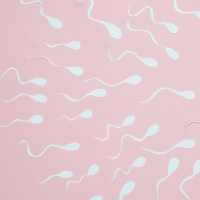
This work will enable researchers to plan future clinical trials so their results can be more easily compared and we understand sooner, which treatments are effective for male infertility.
Male infertility trials are unique in that there are many different measurable outcomes: one participant receiving an intervention or a new drug could have measurable outcomes in the man (sperm count etc), his female partner (ability to conceive) and their offspring (live births).
This makes designing and delivering clinical trials in male infertility challenging.
This work helps researchers, methodologists and clinicians to better design future male fertility trials – specifically the key outcomes that future trials collect and report on.
“We hope this can transform the way we design and deliver clinical trials, to better understand which interventions are effective to treat male infertility, to help couples have the families they desire.” - Mike Rimmer, University of Edinburgh, one of the leaders of this initiative.

Link to video: Male factor infertility research
This set of core outcomes is unique as it is the first time so many international parties have come together to agree on what outcomes should be collected for male infertility clinical trials. This work involved participants from 39 countries including, the UK, the USA, New Zealand, the EU.
It is hoped that by standardising the outcomes collected and reported, it will be simpler and quicker for researchers to compare the results for different treatments and identify which work and which do not.
The outcomes identified include:
- assessment of semen using the World Health Organisation recommendations for semen analysis;
- viable intrauterine pregnancy confirmed by ultrasound (accounting for singleton, twin and higher multiple pregnancies);
- pregnancy loss (accounting for ectopic pregnancy, miscarriage, stillbirth and termination of pregnancy);
- live birth;
- gestational age at delivery;
- birthweight;
- neonatal mortality;
- major congenital anomaly.
The core outcomes set is published jointly in Human Reproduction and Fertility and Sterility. Read the articles on the publishers' websites.
The University of Edinburgh is a charitable body, registered in Scotland, with registration number SC005336. Is e buidheann carthannais a th’ ann an Oilthigh Dhùn Èideann, clàraichte an Alba, àireamh clàraidh SC005336.
